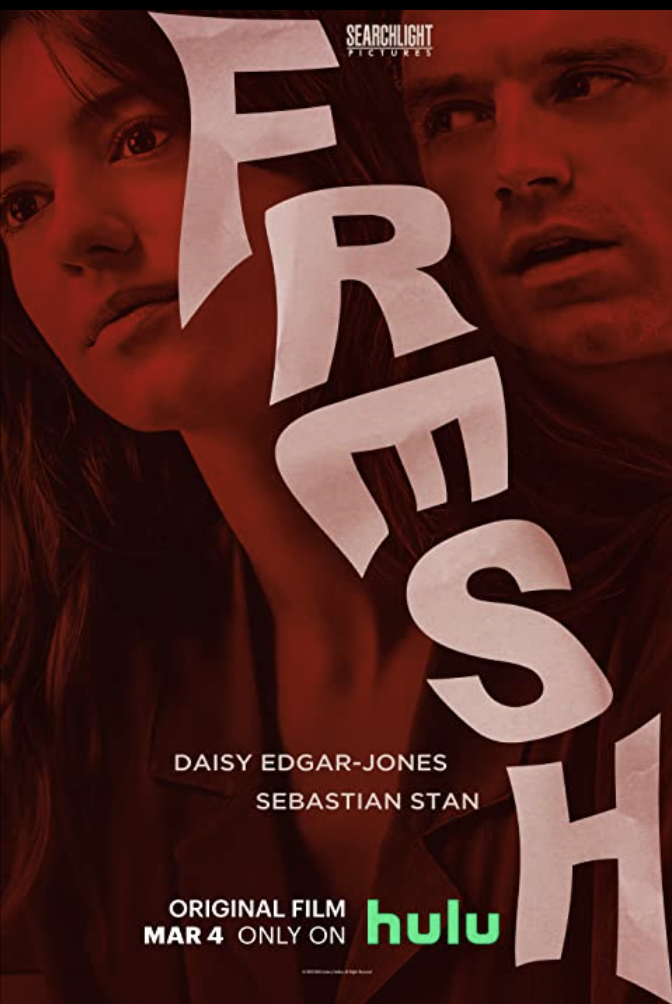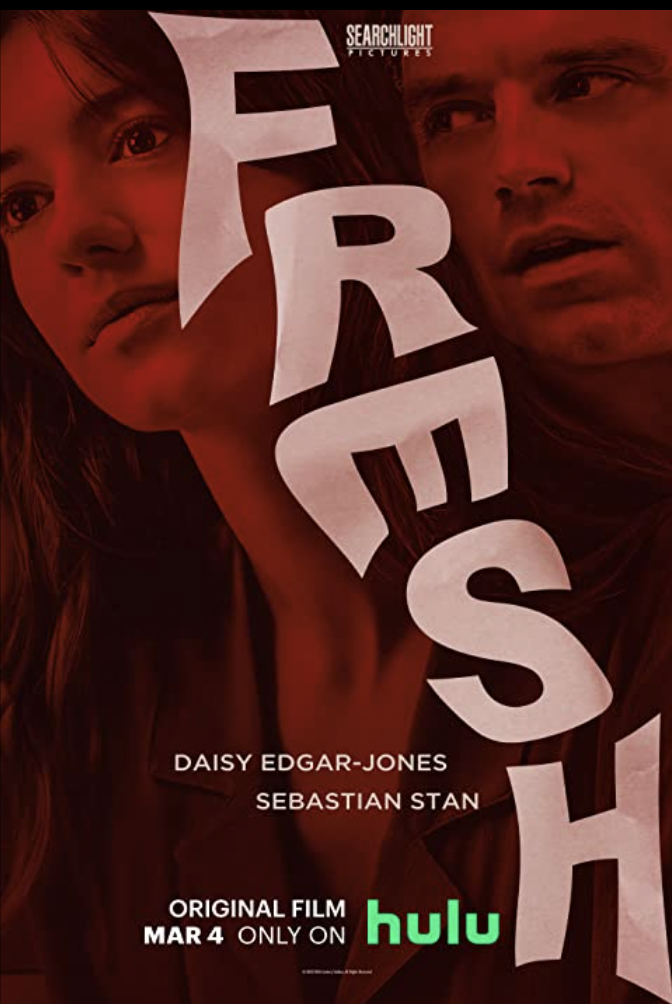The film “Fresh” is a highly dramaticized illustration of what it’s like to be a woman in the dating scene. The film paints a bleak picture of the potential dangers of online dating in an unexpected, borderline taboo manner. This new horror flick also offers a fresh new perspective of what it means to be a woman in film, both behind and in front of the camera. Director Mimi Cave makes sure to create female characters who are self-sufficient and determined to escape their circumstances on their own terms.
The main character Noa, played by Daisy Edgar Jones, is super relatable as she navigates online dating and encounters some strange men along the way. Later in the film, Noa experiences every woman’s dream scenario: she meets a handsome stranger at the grocery store and they hit it off. Cave does a really great job of conveying the female perspective in showing these awkward, borderline painful first dates and tapping into a single woman’s greatest desires.
Noa is very sure of herself; never afraid to voice her opinion. It’s common, especially in horror films, for women to be pawns; background characters with no voice or common sense. A classic portrayal that comes to mind is that of the “stereotypical bimbo.” “Fresh” completely rewrites this narrative in creating multiple female characters who are able to get themselves and each other out of a life or death situation.
Unlike many female characters, who are typically written by men, Noa ends up being a master manipulator who escapes a horrifying situation by outsmarting her captor. Throughout the film, Noa seems to be acting very complacent but in reality she is carefully plotting her breakout.
Noa is able to lull her captor into a sense of comfort and then everything takes a gruesome turn. It also felt very intentional that the women in this movie don’t end up getting saved by a man, Cave really strayed away from the classic damsel in distress narrative.
A recurring theme included in “Fresh” was the line “You should smile more.” This phrase is usually associated with cat calls and is often used by men to try and frighten women. Men see a woman just going about her day with a seemingly blank stare and feel the need to say “you should smile more”.
In using the phrase in the film, Cave reclaims it, and Noa uses it against her captor. It is a moment of power and, in a theater filled with people, would have definitely been met with applause and chatter.
“Women are so often portrayed as the weaker characters in films,” said Matthew Bivens, a junior at Sonoma State University, “…so it was very refreshing to see a director completely flip the narrative. I think positive representation for women in film is long overdue and having more female directors feels like a necessity at this point.”
According to an article from womenandhollywood.com, recent statistics show that only 32% of directors are female. There are usually only stereotypical portrayals of women that only serve to appease the male gaze, this is directly linked with the utter lack of first hand female experience from directors. The consistent portrayal of women in film doesn’t allow for any realistic representation.
“Fresh” successfully portrayed strong female characters that were able to solve their problems without the help of a man. One of the side characters, Mollie, who plays Noa’s best friend is able to locate Noa using very keen observational skills. It feels like so often female characters are shown as airheads and very rarely are seen as strong resourceful individuals. Having more in depth characters only serves to strengthen the plot as a whole, so why do directors continue to stick to old school gendered stereotypes.
Overall, it seems that Cave was able to completely ditch the negative stereotypes associated with female characters. This film offers a balance between vague comedic moments and truly unnerving horror. It is a must watch for anyone looking to see a more inclusive perspective of the female experience. There is a very meaty plot with a super relatable main character which makes for a wild ride.




































